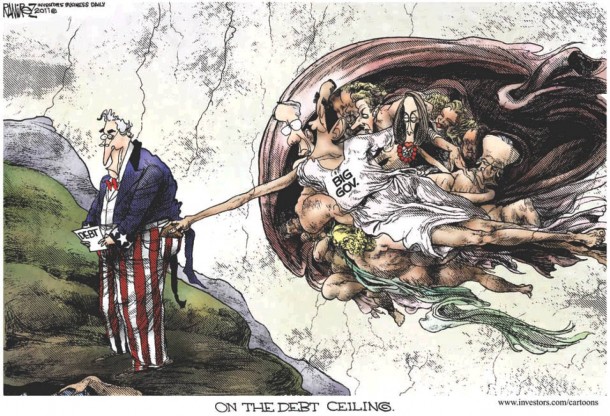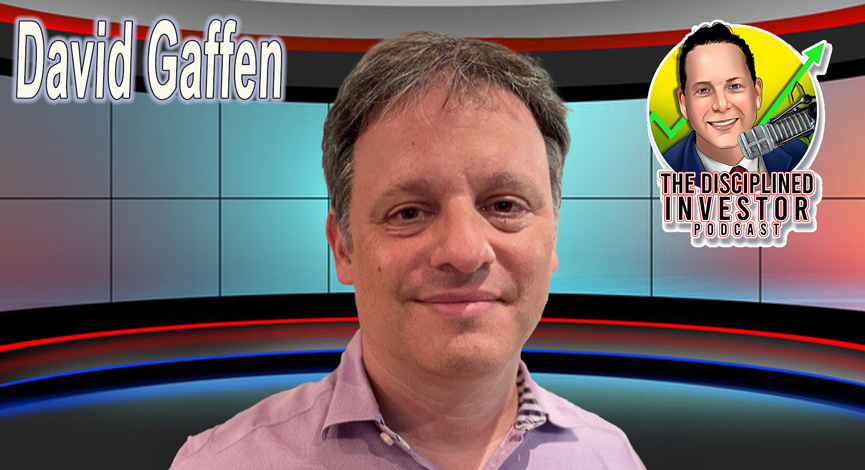In the editorial section of IBD this weekend, there was an excellent article that caught my eye. As all of the gamesmanship and immaturity has been focusing on the debt ceiling, the news coverage regarding the poorly execute jobs recovery plan has apparently been shifted – at least temporarily. With the recent display of political grandstanding and empty promises, does anyone still believe that his administration, along with Congress, has any idea on how to get the U.S. back to growth?
Promise were made that the enormous amount of stimulus would be used to bring down the unemployment rate and we now know how that has worked out. So, what have we been left with? A no-win situation where the choices will be to increase the debt-ceiling in order to pay the bill, increased taxes to pay back the money borrowed and a cut in the spending that was used to provide benefits during a time of a national economic emergency. In other words, the U.S. now has an inconceivably high tab to pay for the spending spree that did nothing more than buy us some more time.
Of course, if the government did not step in during the height of the financial crisis, we would have entered a prolonged depression with high unemployment and a series of institutional failures. At least that is what we have been told. So, Uncle Sam footed the bill for not only the U.S, but also many foreign entities.
Has anyone in government ever considered what could happen if the U.S. was unable to actually kick start the economy into a prolonged period of growth? Had/has out government ever looked into the downside risks of spending trillions of dollars prior to distributing dollar one? How is it that the U.S. has been charged with the responsibility of financial security for the whole world? Why are we involved in wars that are costing billions of dollars in countries that despise us? Who is going to be there to bail us out if none of the stimulus plans work?
Politicians have been making promises without any backup for a while. They are apparently of the belief that either we are stupid or that holding a carrot of hope in front of our eyes will memorize us into thinking that they have it all under control. How many times will out esteemed President and Congress come out with a fictitious number without any plan to back it up?
Remember the ObamaCare fiasco when Speaker Pelosi told us that we did not need to read the bill, just have trust? Sorry, that is no longer going to cut it and it seems that the attitude that the U.S. is number one may be quickly lost as the debt ceiling talks break down and rating agencies move to downgrade our debt.
I could go on, (and maybe I will do just that this week) but for now, take a read of this article for additional insight into the employment situation. I thought it was written quite well.
Employment:The latest jobless claims report was more of the same bad news. So what‘s the root of this seemingly intractable problem? There‘s a compelling argument that the trouble is being caused by ObamaCare.
New claims for unemployment benefits rose by 10,000 to 418,000 ”” the 15th straight period that the total has exceeded 400,000.
If that figure seems familiar for some other reason, recall that it was part of the promise then-Speaker Nancy Pelosi made during the ObamaCare debate. “It‘s about jobs,” Pelosi said in February 2010 of ObamaCare. “In its life, it will create 4 million jobs ”” 400,000 jobs almost immediately.”
So how‘s that working out so far, Rep. Pelosi?
The economy has been in recovery since the recession ended in June 2009, five months after President Obama took office. Yet the jobless rate is 9.2%, up from 7.6% on the day of his inauguration. Private-sector jobs have fallen by 2 million. Last year‘s “Recovery Summer” has turned into the year of the mass layoff.
Bottom line: Job creation outside of government has been abysmal.
It hasn‘t always been that way. In the early postrecession months job creation moved along at the normal rate. But the job market stumbled and fell in May 2010, a little more than month after Obama signed his health care legislation into law.
From January 2009, the month of Obama‘s inauguration, to April 2010, an average of 67,600 private-sector jobs were created on a monthly basis. That April, the private sector added 229,000 net jobs. But the following month, it added only 48,000 jobs. Since then, the average number of private-sector jobs added each month is an anemic 6,500.
Coincidence?
Not according to a new report from the Heritage Foundation. The jobs collapse “suggests that businesses are not exaggerating when they tell pollsters that the new health care law is holding back hiring,” writes James Sherk in the Heritage Web Memo “Economic Recovery Stalled After ObamaCare Passed.”
Sherk says the Patient Protection and Affordable Care Act discourages hiring in a number of ways:
V Its provisions give businesses that have fewer than 50 workers “a strong incentive to maintain this size.” Doing so “allows them to avoid the mandate to provide government-approved health coverage or face a penalty.”
V Employers more are facing rising health care costs because they have to buy more costly government-approved insurance or pay a penalty. Adding to their work force becomes more expensive than it would have been otherwise.
V Businesses are up against significant uncertainty about what is considered “qualifying health coverage” and what that coverage will cost.
“They also do not know what the health care market or their health care costs will look like in four years,” writes Sherk. “This makes planning for the future difficult.”
The report acknowledges the fact that “improvements in the job market ground to a halt after Congress passed ObamaCare” isn‘t proof that the health care law caused it. But, Sherk writes, “the fact does lend strong weight to the voices of businesses who say that the law is preventing hiring.”
He notes that July‘s U.S. Chamber of Commerce Small Business Outlook Survey found 33% of business owners consider ObamaCare to be “either their greatest or second-greatest obstacle to new hiring.”
He also points to Dennis Lockhart, president of the Federal Reserve Bank of Atlanta, who reports that prominent among the hurdles to hiring “is the lack of clarity about the cost implications of” ObamaCare.
“We‘ve frequently heard strong comments to the effect of `my company won‘t hire a single additional worker until we know what health insurance costs are going to be,‘ ” said Lockhart.
These findings might surprise some, but they shouldn‘t. A growing government is the enemy of a healthy jobs climate.
















